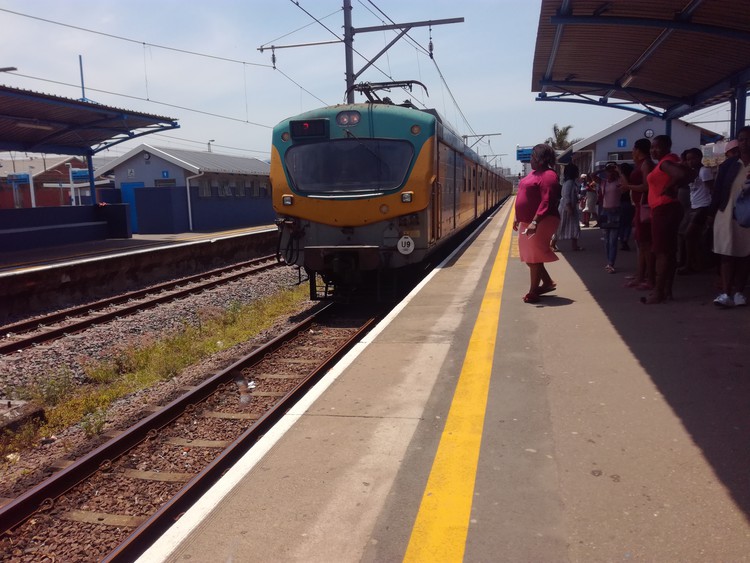
8 February 2021
Sacked PRASA executive Martha Ngoye and two colleagues have gone to the Labour Court to contest their dismissal. Archive photo: Barbara Maregele
Martha Ngoye, Nathi Khena and Tiro Holele, three executives of the Passenger Rail Agency of South Africa (PRASA) who recently had their contracts ‘terminated’ by PRASA’s board, have filed an urgent application with the Johannesburg Labour Court, seeking immediate reinstatement to their former posts.
In her founding affidavit, which is supported by Khena and Holele, Martha Ngoye argues that at the time that her contract and Khena’s were terminated, on 29 January, and by 3 February, when Holele’s was terminated, PRASA’s board was not properly constituted, and therefore not empowered in law to fire these executives. Ngoye also argues that the argument used by the board justify their terminations — that their contracts had a five-year expiration date — to was not supported by fact, and not valid in law.
Ngoye’s affidavit describes a fraught relationship with the PRASA’s chief executives and the transport ministry, after she had advised former ’Administrator’ Bongesizwe Mpondo that his appointment was not based in law and open to legal challenge. Khena for his part alleges persistent victimisation over a number of years.
In a judgment last year in the Western Cape High Court, Judge Nathan Erasmus ordered Minister of Transport Fikile Mbalula to sack Mpondo and appoint a board that fulfilled the criteria of the Legal Succession to the South African Transport Services Act.
This Act, which governs the administration of PRASA, stipulates that PRASA’s board must include a representative from the Department of Transport, among others.
According to Ngoye, the board lacked a representative from the Department of Transport at the time of her termination, and therefore was inquorate, and lacked the required authority to terminate the executives’ contracts. Ngoye argues that on these grounds, the board’s decision is unlawful and should be set aside.
Ngoye goes on to argue that she, Khena and Holele were all employed by PRASA on permanent contracts, and that their tenures of contract were never amended. Ngoye suggests that most of the approximately 20 executives at PRASA have been at the rail agency for more than five years.
Ngoye says that a shift in the terms of their contracts was never discussed with them, contrary to Ramatlakane’s assertion in the media that all the executives were “aware at all material times that their employment contracts were for five-years periods and not more.” Ngoye, Khena, and Holele submit as evidence their contracts with PRASA.
As a result, says Ngoye, PRASA’s decision to unilaterally terminate the contracts on the grounds that these had expired after five years is “unlawful, invalid and of no force and effect,” and should be set aside.